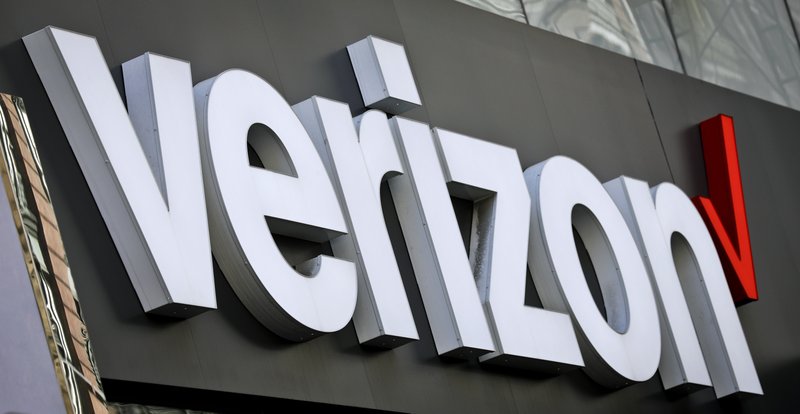Verizon's big bet on digital advertising isn't panning out.
The wireless company spent more than $4 billion to buy AOL and nearly $5 billion to buy Yahoo as part of an effort to compete with Facebook and Google in a growing market for digital advertising. Now, Verizon is slicing the value of those two businesses in half, taking a $4.6 billion accounting write-down in the fourth quarter.
The company blamed weak revenue and earnings from the two businesses, known jointly as Oath, and said the benefits from integrating Yahoo and AOL were less than expected.
The write-down "puts a period at the end of a short and inconsequential sentence," said Craig Moffett, an analyst at MoffettNathanson.
"They tried to create an alternative revenue stream for wireless, but they have ultimately found it too hard to make advertising into what they had originally hoped," he said. "The best one can say is that it was a relatively modest investment for a company of Verizon's size."
In recent years, telecom companies have been acquiring producers of entertainment, news and other content to compete with tech giants such as Amazon, Google and Facebook. The biggest example is AT&T acquiring Time Warner earlier this year for $81 billion. Telecom companies are looking for alternative sources of revenue to grow in a world where most Americans already have cellphones.
Moffett said AT&T should pay close attention to Verizon's troubles.
"They hope to succeed at a time when Verizon has already admitted failure," he said. "And AT&T's bet was many, many times larger."
Verizon was ahead of the curve when it bought AOL in 2015 and Yahoo two years later. Even at the time, the two legacy Internet companies were past their late 1990s prime. And while the Yahoo price was already lowered to reflect a pair of security breaches at the company, many analysts thought $5 billion was a lot of money to pay.
Yet Verizon took a bet it could revitalize the properties. The goal was to attract lucrative digital advertising dollars as more ad revenue shifts online.
Those dollars have not materialized as users, and by extension ad dollars, stuck with giants like Facebook and Google instead of turning to Oath properties for online content.
"It's always been the case that Google and Facebook primarily, and Amazon secondarily, sucked most of the oxygen out of the industry," Pivotal Research analyst Brian Weiser said. If Verizon wasn't willing or able to invest substantially in the business and find a way to differentiate itself to large advertisers, it would be "game over," he said.
Oath Chief Executive Officer Tim Armstrong stepped down in September, though he will continue as a strategic adviser there until the end of the year.
Armstrong announced the reorganizing of Verizon's media properties and the creation of Oath last spring. "Billion+ Consumers, 20+ Brands, Unstoppable Team," he said in a Twitter post, which was mocked at the time, with social media users ribbing Oath's name and what they took as the strained rebranding of legacy Web companies past their prime.
But to Verizon, Oath was the culmination of its new advertising strategy. Verizon bought AOL in part to take advantage of its ad technology, which could be put to work to sell increasingly personalized ads against Yahoo's content. At the time of the acquisition, Yahoo's portfolio of websites, including Yahoo Finance and Yahoo Sports, pulled in gargantuan amounts of online traffic. Nearly 200 million unique visitors flocked to Yahoo's websites last April, according to the analytics firm ComScore, besting every other Web destination except Facebook and Google.
This year, however, Oath could not withstand increased competition in the online ad business, Verizon said, and it expects those pressures to continue.
Separately this week, Verizon said that 10,400 U.S. managers have accepted voluntary buyout offers. It will take a charge of $1.8 billion to $2.1 billion in the fourth quarter related to the buyouts, according to a regulatory filing late Tuesday.
The New York company is making $10 billion in cost cuts, money that will be used to ramp up investments in 5G, the next-generation network that telecoms are pouring billions of dollars into to develop for home broadband service and other faster tasks.
Verizon is undergoing a significant restructuring under new CEO Hans Vestberg. The company said last month that it will be organized into four groups at the start of the year: Consumer, Business, Media, and Global Network & Technology.
Shares fell 2.6 percent Wednesday to close at 57.34.
Information for this article was contributed by Mae Anderson of The Associated Press and by Hamza Shaban of The Washington Post.
Business on 12/13/2018
